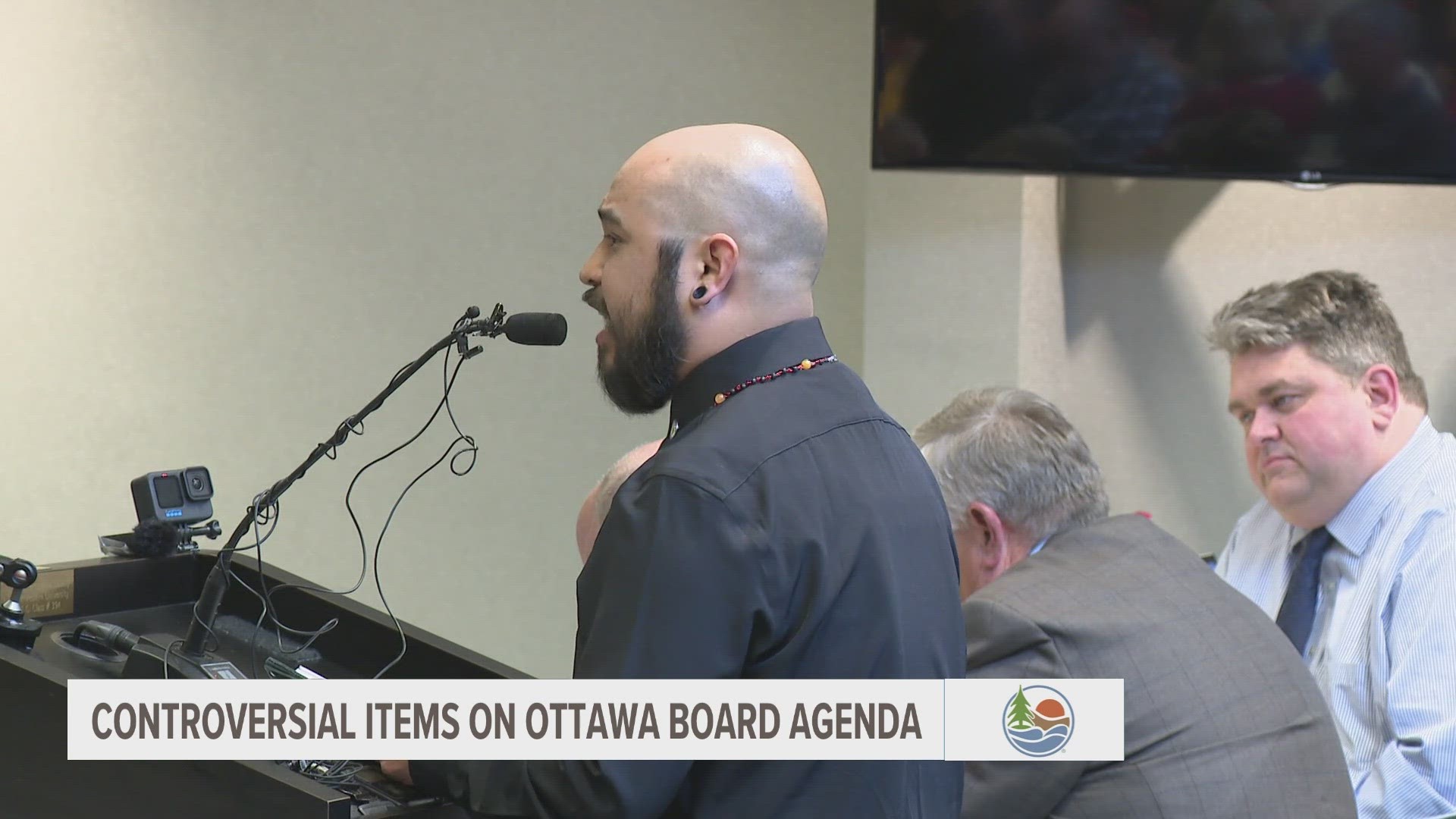LANSING – Republican lawmakers introduced bills Thursday that would undo some of the provisions in two of the ballot proposals overwhelmingly passed by voters on Nov. 6.
One bill, introduced by Senate Majority Leader Arlan Meekhof, R-West Olive, would prohibit homegrown marijuana that was part of the legalization ballot proposal that passed by a 56-44 margin. That provision allows anyone over the age of 21 to grow up to 12 marijuana plants for personal use in their homes.
Meekhof said Thursday that he wants to prohibit home grows as a way to stop pot from flooding neighborhoods across the state.
“People don’t get to make alcohol and serve it in unregulated bars to anyone they want to. Homegrown marijuana is basically unregulated,” he said. “It should be in some regulated form, so we have consistency and safety. It’s a mind-altering substance like alcohol. It should be somehow controlled.”
Jeffrey Hank, director of the East Lansing-based MiLegalize, which was part of the coalition to support marijuana legalization, said the measure is just more “lame-duck mischief.”
“He’s really being totalitarian if he thinks Michigan adults can’t grow a plant or two. He just wants to do this to block competition from corporate interests,” he said. “People can make their own wine and their own home-brewed beer — they should be able to grow a few plants.”
Several other bills introduced Thursday would require a declaration of U.S. citizenship on driver's licenses and state identification cards before a person could automatically be registered to vote. The Promote the Vote ballot proposal, which passed 67-33 percent, includes a provision that automatically registers a person to vote when they get a driver’s license or state ID.
The bills, introduced by Sen. Mike Kowall, R-White Lake, would also allow a person to opt out of registering to vote when they got state identifications or driver's licenses. And, while the Promote the Vote proposal allows people to register to vote up until the day of the election, another bill limits the ability to register to 14 days before an election.
The chances of passing the changes to the approved ballot proposals, however, are almost impossible in this lame-duck session. Because the two proposals were passed by voters, the Legislature needs to muster a supermajority — a three-quarters vote — in both the House of Representatives and Senate. Republicans hold a 27-11 supermajority in the Senate, but only a 63-47 edge in the House.
Democrats are unlikely to support any changes to the laws and even some Republicans aren’t on board with the proposals.
“I don’t believe in home growing (marijuana) for sale, but I don’t object to growing for personal use,” said Sen. Rick Jones, R-Grand Ledge.
The marijuana legalization law, which goes into effect on Dec. 6, prohibits home growers from selling their products, although they can give away the pot.
The marijuana legalization includes a provision that gives the state Department of Licensing and Regulatory Affairs the authority to regulate and license marijuana businesses. Meekhof’s proposal changes that so that a politically appointed licensing board — similar to how the medical marijuana industry is regulated — also has the authority over licensing businesses in the recreational marijuana industry.
“The people in Michigan have already spoken and passed our initiative with more votes than Gov.-elect Gretchen Whitmer got,” said Josh Hovey, spokesman for the Coalition to Regulate Marijuana like Alcohol, which led the legalization campaign. “For lawmakers to immediately go against the will of the people is undemocratic and it totally disregards the political process.”
The bills build on an already controversial lame-duck session that has included Republicans in the Senate passing laws gutting minimum wage and paid sick leave laws that were a part of a citizen-led petition drive to get the issues on the ballot.
The Legislature passed those two initiatives in September in order to keep them off the ballot and leave them with the ability to amend them after the election with only a simple majority, rather than the three-quarters vote they would need if voters had passed the proposals.
Instead of a $12 minimum wage phased in through 2022, a bill now spreads out the increase until 2030 and removes tipped workers, such as bartenders and wait staff, from the wage hike. A paid sick leave bill cuts the amount of paid sick time a worker can get each year from 72 hours to 36 and exempts businesses with fewer than 50 employees.
The House of Representatives still has to consider those two bills.
Contact Kathleen Gray: 313-223-4430, kgray99@freepress.com or on Twitter @michpoligal.



